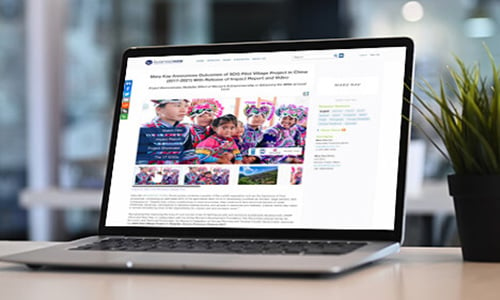When a major disaster hits, whether it’s COVID-19 or another event that puts people, property and businesses in peril, it's often difficult to understand the best path forward to approaching the media. Although companies may have information or announcements that can benefit the public, there is a sensitive line between providing helpful and valuable information and being seen as trying to profit on the back of a tragedy. It's important to understand when, how and with what type of information to approach the media as well as employees, customers, and other stakeholders. In this article, we'll examine the current media climate and help communicators evaluate how and when to approach the media with crisis-related, and non-crisis-related messages to ensure a receptive audience and productive approach.
Understanding the Crisis
Having worked in this industry for more than 20 years, I’ve seen my share of crises. Some we anticipated – like Y2K or Hurricane Sandy. Others, we did not – 9/11 and the 2008 dot-com tech bubble. Coronavirus is somewhere in between. For those with global clients or business operations, you may have heard the soft warnings coming out of Asia late last year or early in January. However, COVID-19 seemed to only hit crisis levels in the U.S. media, as of last week.
No matter what the crisis is, understanding its immediate and long-term impact will help you navigate the media landscape. Some questions to ask yourself:
- Is this a human or economic tragedy, or both? Whenever we are dealing with severe physical injuries and loss of human life, it is a much more sensitive time than economic impact alone. Certainly, in the current crisis, we don’t know who may be grappling with a devastating situation of themselves or a loved one with a severe reaction to the virus or just overall anxiety around the potential gravity of our circumstances.
- Is this an acute crisis or ongoing event? In an acute crisis, it may be best to wait until the event passes or the media cycle has moved on. However, if it is an ongoing event, such as we are facing now with Coronavirus, your business may need to move ahead with plans in order to ensure business continuity.
- Is this a local, regional or global crisis? Does it impact all markets/sectors/segments of society or is it limited? At the moment, no one is immune to the effects of Coronavirus, which makes it a unique, global crisis that impacts every walk of life and every market segment. However, it has impacted certain sectors more, such as travel and hospitality, while others less, such as cybersecurity. Depending upon your company’s industry and target audience, the media may be more open to covering non-crisis-related stories.
Anticipating Media Reception
Prior to pitching your news, it’s important to take the temperature of the media landscape in order to determine receptivity to your message. This can also help you guide your executive team to understanding what can and cannot be achieved from a communications standpoint during a crisis. A few actions you can take include:
- Conduct a quick media audit. Just taking a look at the headlines on some of your target outlets or publications will give you a good indication of the percentage of news that is crisis- or non-crisis-related. If you review the home page of a publication’s site and you see that more than 50% of the news is crisis related, you still have 50% of reporters writing about non-crisis news. Try to evaluate the types of topics and stories they seem most open to.
- Monitor journalist queries and social media sites. Free services like HARO and Qwoted allow journalists to send out requests to PR people for leads and sources for stories. We are still seeing ones that are not Coronavirus-related at the moment. In addition, if you are connected with or follow journalists on social media, many of them will share the types of stories they are working on or sources they are seeking.
- Ask. There is nothing wrong with asking journalists, especially those you may work with on a regular basis, if they are open to non-crisis stories at the moment. Be human about it – ask about them, their health, their family and if they are impacted. Many journalists are also freelancers these days and they may be concerned about their own livelihood. A word of support and understanding can also go a long way to building a relationship for the long-term.
Evaluating Company News & Value
During normal times, it’s important to be able to look objectively at a company’s message and evaluate its ‘newsworthiness’ before approaching the media. However, sometimes management, stakeholders or even regulatory requirements dictate the need for specific press releases or media outreach even when communicators would typically advise against it. During a crisis, it’s all the more focus on relevant, valuable and timely news.
- Provide educational insights, unique perspectives or informed predictions related to the crisis. If your company has the ability to educate the public on an element of the crisis, provide insight into how customers or consumers are grappling with pertinent issues or you may have access to proprietary data that can help identify trends or movements in your industry or market -- these are valuable news stories for the press. In the current COVID-19 crisis, people want to know how companies are faring in China now that it seems to be on the downslope of the viral infections, while others who have yet to feel the full impact might want to know best practices to prepare their businesses.
- Share your company’s plan to help your employees, customers, community or your own business through this challenging time. Media want to help others overcome a crisis by reporting on best practices from other companies. Perhaps, your organization can pivot its resources to assist in crisis mitigation – from restaurants offering food for the homeless, seniors or those in quarantine to videoconferencing services offering free access to K-12 schools, there are thousands of companies doing good even in the worst of times.
- It’s not the time for a hard sell. During a crisis, there will still be companies and media outlets that are forging ahead with business as usual. They are planning next month’s product launches and next week’s publication. Media need non-crisis-related news to fill those pages and that airtime. We just need to tread with caution and be mindful of the toll of the crisis at large. I’ll never forget in the early afternoon of September 11th when the whole world was glued to the TV trying to comprehend the magnitude of the day’s horrific events, I received a call from a local car dealership to let me know about a sale on the new models. Needless to say, I was so infuriated that I still think about it every time I pass that dealership and I have never set foot in there since.
For every business, this is an especially challenging time and one in which public relations may be one of the few lifelines to sustain their business and drive demand for products and services. We have to consider both the immediate and long-term needs, of our organizations as well as the media and the public, when conducting outreach. In any crisis situation, there is tremendous fear and uncertainty, but there is also an opportunity to demonstrate compassion, humanity and leadership. This applies to working with media as well as within your own organization, your customers and your community.
Sandra Fathi has spent the last 20 years helping technology, healthcare and professional services companies achieve their goals. As President and Founder of Affect, a public relations, marketing and social media agency, Sandra has successfully led the company with consistent growth since the agency’s inception in 2002. Sandra started her career as a reporter for a division of Ziff Davis and IDG Tech Network. She went on to work at a number of leading technology firms and one of the top global PR agencies. Her clients have included Apple, EDS, Ericsson, Nokia and Microsoft, as well as innovative start-ups. She is a sought-after speaker for conferences and events and her expert commentary has appeared in business and industry outlets such as CNN, Forbes, Entrepreneur, Inc., Huffington Post and U.S. News & World Report. She has also been recognized as one of PRNews’ Top Women in PR, a PRNews PR Professional of the Year finalist, and a Bulldog PR Agency Professional of the Year. In addition to her professional pursuits, Sandra is a wife and mother of two children and one demanding dog. She is passionate about philanthropic work and serves on the Board of HavServe, a nonprofit organization focused on community-led development in Haiti.
Get the latest PR, IR, Marketing and Media tips on the Business Wire Blog. Subscribe today!





